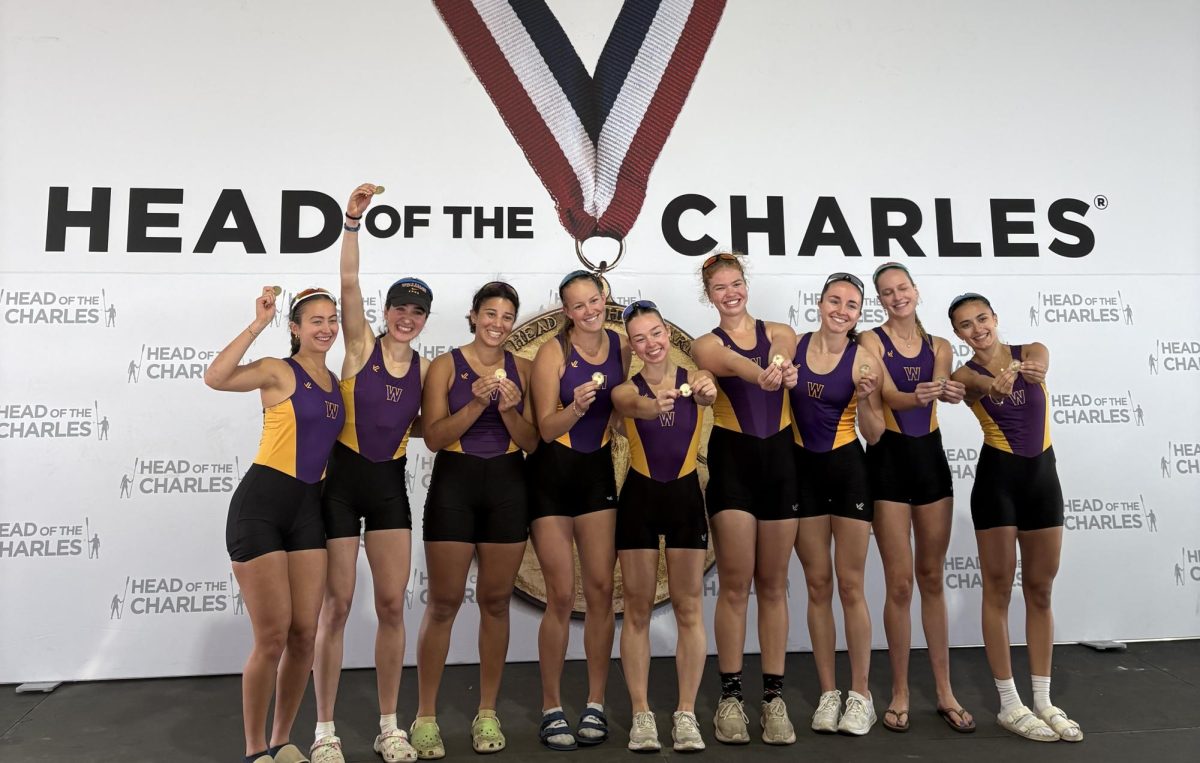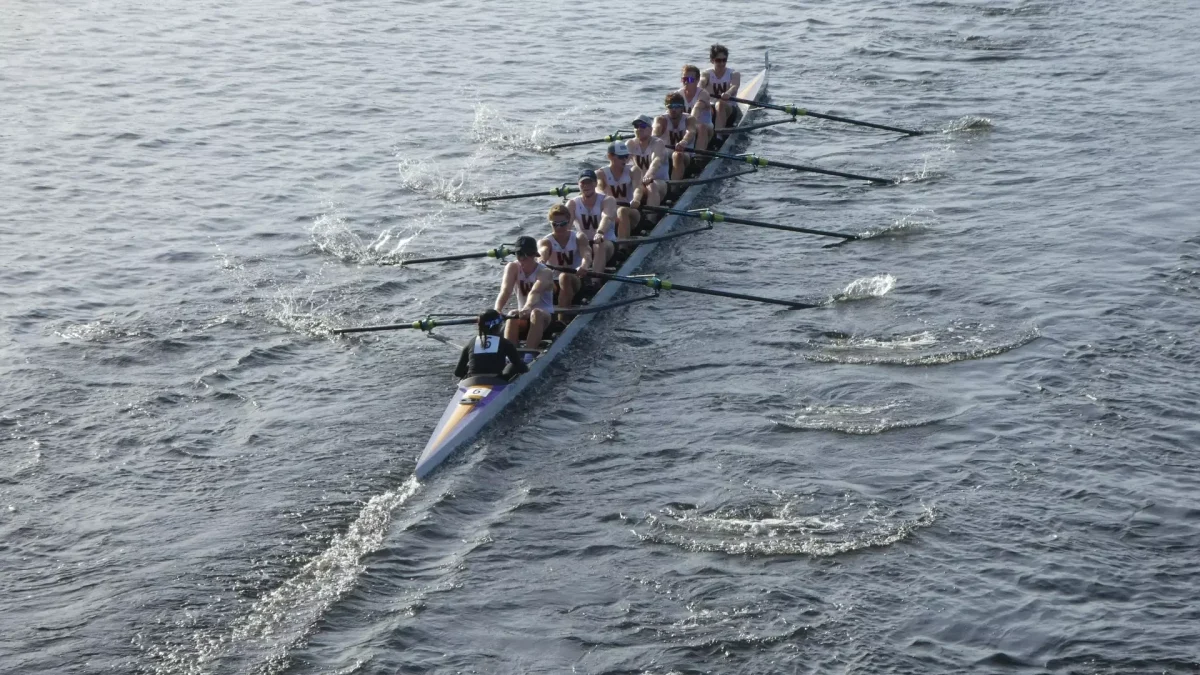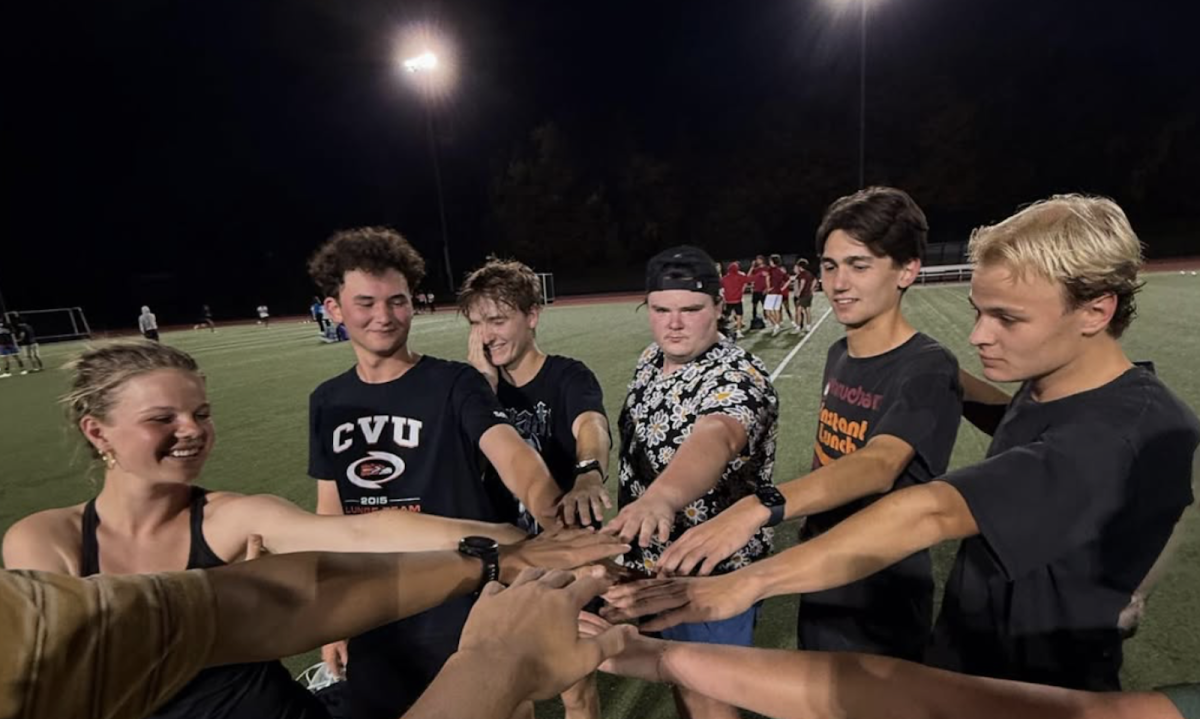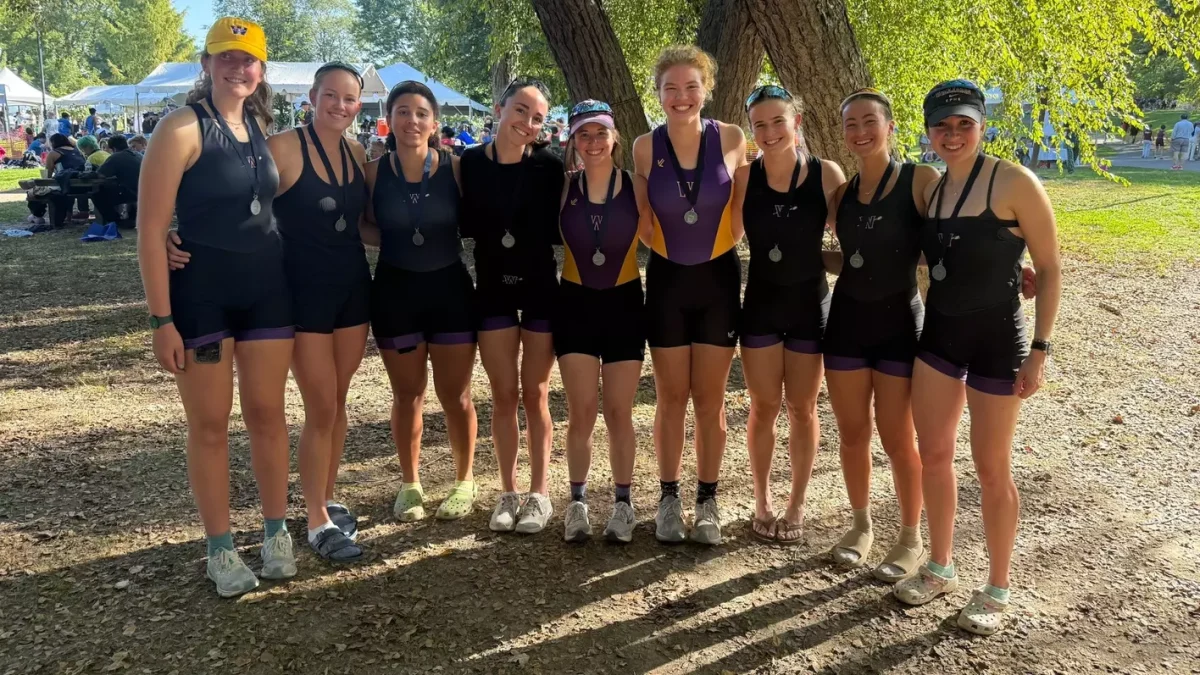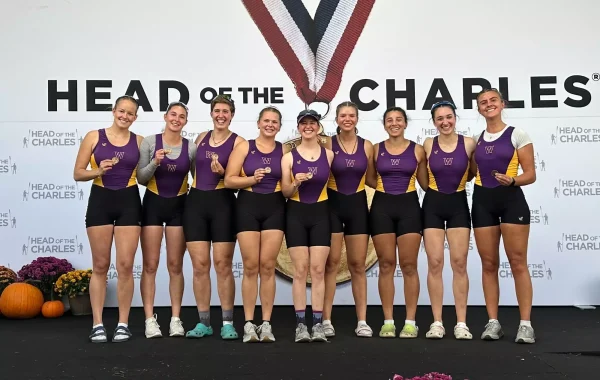
Women’s crew hit the banks of the Charles River on Sunday to compete in the historic Head of the Charles regatta in Cambridge, Mass. The Ephs sent three boats — two eights and a four — to take on the challenging course, flanked by the roar of the energetic crowd. The 1v placed third, earning the team’s first medal since 2018. The 2v placed 27th out of 34 crews, while the four finished 20th in a 40 boat-field, qualifying once again for next year’s regatta.
The annual three-day regatta is the largest in the world, and this year marked the 59th competition. It drew in tens of thousands of viewers as well as over 12,000 athletes.
Grace McLaughlin ’28, second seat of the 1v, who was captivated by the race when she attended it as a child, expressed her enthusiasm about competing in it for the first time. “Being at this race was something that I’d always dreamed of, and I think competing on that course was so cool in itself,” she said.
“I think having executed such an amazing race, and then coming out of it having placed third, was beyond what we all dreamed of,” McLaughlin added.
According to Prairie Resch ’25, the third seat for the 1v, the course is known for its difficult obstacles and turns. “It becomes really a coxswain-driven race,” Resch said. “The coxswains have to know exactly which turns to take, which sides to be on, when to pass boats, when not to pass boats. And then it’s up to the rowers to respond to that and to add pressure.”
Maddy Andersen ’25, the fourth seat for the 2v, echoed this sentiment, crediting coxswain Charis Woo ’27 for her sharp decision-making on the chaotic course. “We were chasing down boats ahead of us, like the University of Rochester, and trying to hold off Colby, and we did that until the very end,” Andersen said.
In addition to the course’s intricacies, Resch described the chaos added by the fervor of the crowd. “It’s really loud — most races, you don’t get that sort of constant noise tunnel that you do at the Charles,” Resch said. “So it’s a little overwhelming for that reason too.”
Though the race is just as competitive as any other, the regatta also celebrates the rowing community. “The course itself is really electrifying,” Andersen said. “There’s fans all around, and just hearing people cheer for Williams specifically, it was kind of surreal. It made me really grateful to be part of the community and to be part of such a large event, but we had to be really mindful of not letting that overtake the actual race.”
Resch’s boat finished third and earned the team its first medal since 2018. “There’s a lot of emotions and a lot of excitement, especially seeing our team at this level in the fall, which has never happened,” Resch said. “Also a lot of nostalgia because it’s my senior Charles [and] the best one that I’ve ever had.”
Andersen said she was proud of the 2v and the work she and her teammates put into the race. “We had a lot of goals as a boat, other ways to define success, and some of those were feeling really connected and powerful and together,” Andersen said.
Resch said the competition was a great feat for all of the Ephs who participated. “Even though the third place was one boat, it was a really impressive race for all three boats,” Resch said. “The support comes from all levels of the team and it’s really important to celebrate them as well. It’s not just a one-boat race.”
For the first time since 2019, the team also sent a third boat to the race. Last year, the 1v placed 15th, which re-qualified the boat for this year’s competition. The team then entered into a lottery to earn spots for the 2v and four at the prestigious race.
Despite having only six practices as a group, the four placed 20th out of 40 crews. Coco FitzMaurice ’27, the second seat, described the challenges of rowing in a smaller boat. “You get to interact with everyone in the boat, which is really nice,” she said. “It’s also, I think, technically harder because it’s a lot more unstable.”
Sunday’s race was FitzMaurice’s fourth time on the water at the Charles, having raced in it twice in high school and once as an Eph last year. Though accustomed to the course, she said the chaotic environment remains an important hurdle to overcome. “If you [can] take the pressure off, it can be a fun racing environment because there’s a lot of positivity about rowing, which is not always the case,” FitzMaurice said.
In her first season as an Eph, McLaughlin was struck by the team’s supportive culture. “One of the things that Williams rowing has, that I’ve noticed just in my freshman year … is that sense of wanting to do it for each other,” she said. “It’s one of the hardest things to find in rowing because it’s so competitive.”
“I mean, every race, every warm up, we always are fist bumping each other through the boat,” she added. “It’s such good energy.”



